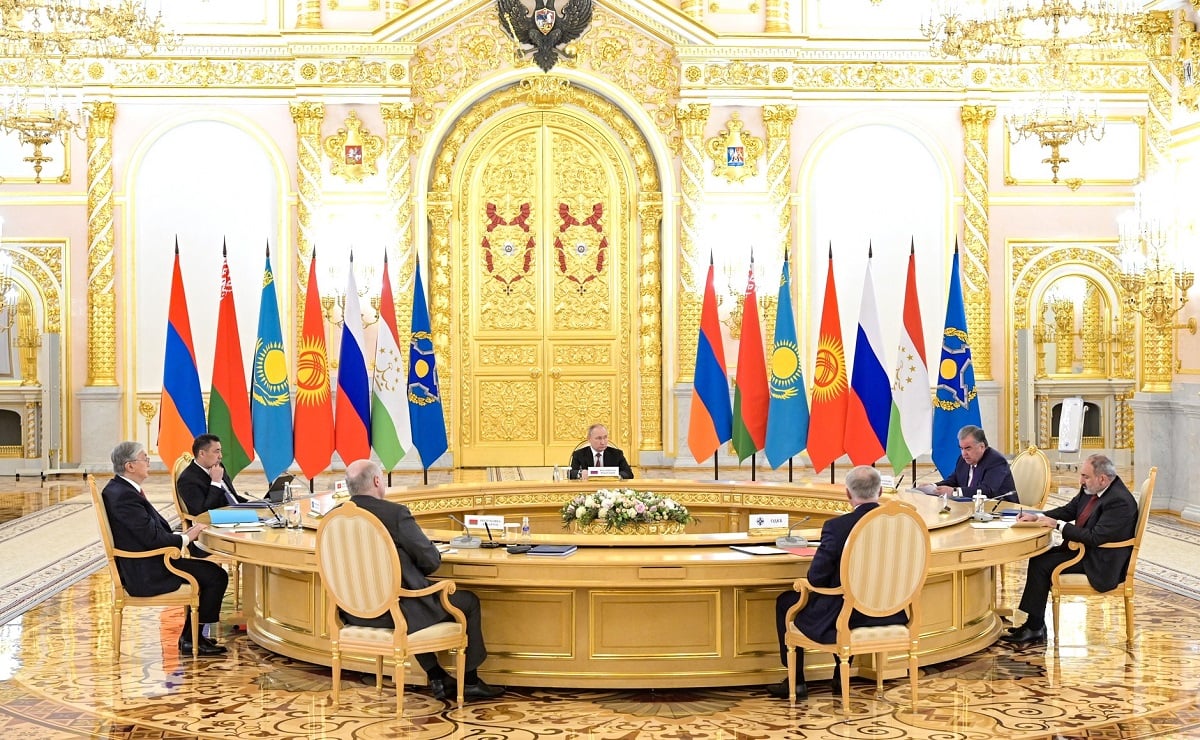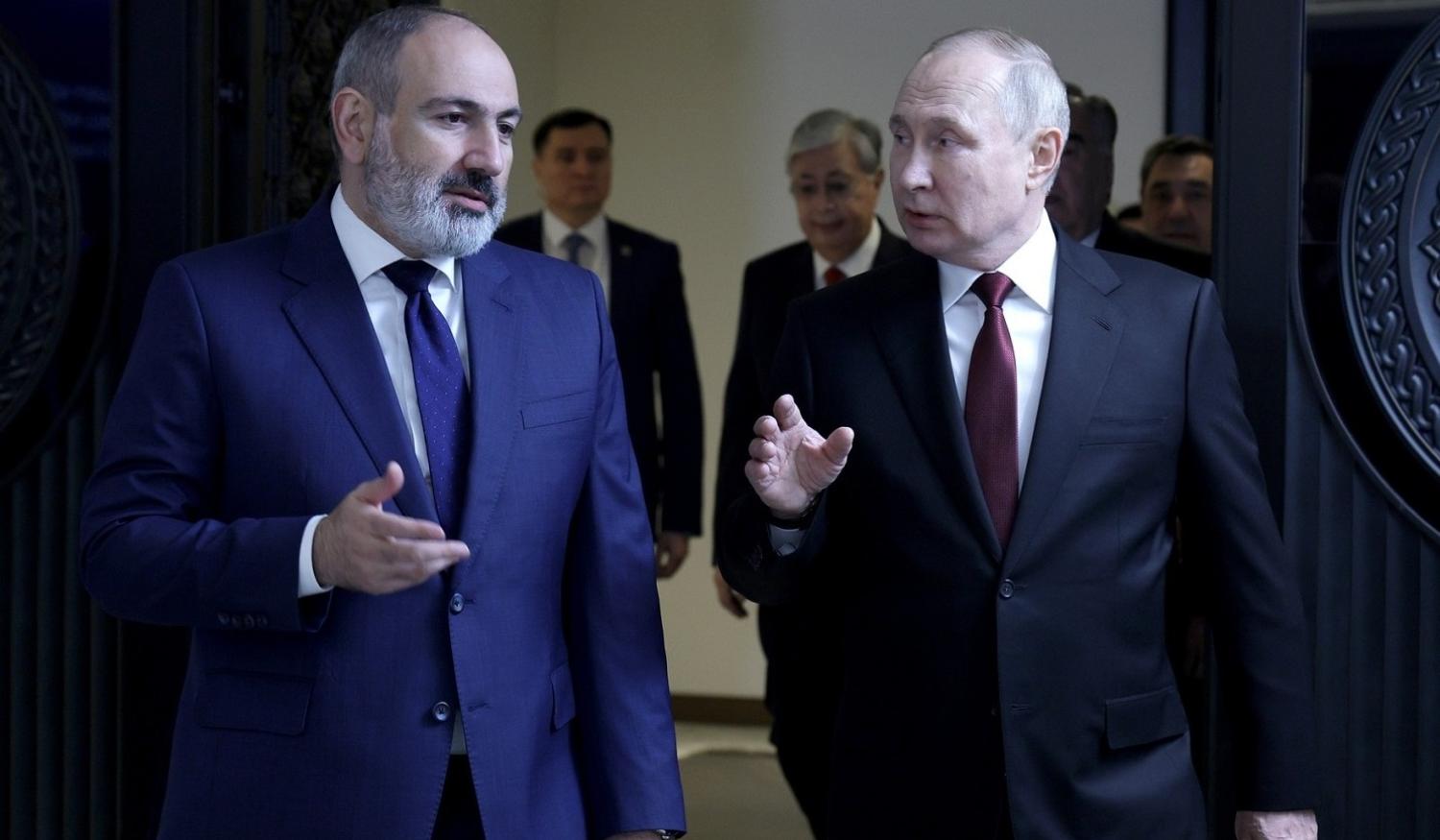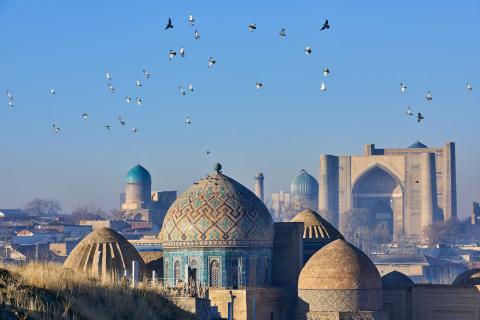Russia continues to lose influence around the world, above all in the post-Soviet space. The Russian-dominated Collective Security Treaty Organisation (CSTO) seems to be the last instrument available to the Kremlin to preserve at least some of the allies in Moscow’s geopolitical orbit. But does the CSTO have a future?
Belarus is the only CSTO member that openly supported Russia’s so-called special military operation in Ukraine. Other of Moscow’s nominal allies – Armenia, Kazakhstan, Kyrgyzstan and Tajikistan – have either taken a neutral stance on the Russian invasion or have started distancing themselves from the Kremlin. None of them has recognised Moscow’s annexation of the Donbass and south Ukrainian regions of Kherson and Zaporizhzhia, which is a clear signal that Russia cannot even count on political support from its partners.
Militarily, countries such as Kazakhstan and Kyrgyzstan seek to expand cooperation with Turkey, while Armenia – Moscow’s only ally in the South Caucasus – now sees India, rather than Russia, as its major arms supplier. At the same time, Yerevan seeks to strengthen bilateral ties with Iran, quite aware that for Tehran, the sovereignty of landlocked Armenia is a “red line” in its relations with neighbouring Azerbaijan.
More importantly, Armenia refused to host CSTO military drills on 10 January, a direct result of Russia’s ambivalent position regarding the Lachin Corridor crisis, which has hampered access to the route connecting Armenia and Nagorno-Karabakh across the territory of Azerbaijan. Given that the Russian peacekeepers in Nagorno-Karabakh proved unable to ensure security of the only road connecting the mountainous region of Azerbaijan, where ethnic Armenians make up the majority of the population, with Armenia, Yerevan now seeks to replace the Russian troops with a UN peacekeeping mission.
In addition, the Kremlin’s decision not to help Yerevan following the border clashes between Armenia and Azerbaijan in September 2022, has forced the nation to start turning its back on Russia.
Moscow’s Central Asian allies seem to have adopted the same approach vis-à-vis the Russian Federation. In October, following the Tajikistan–Kyrgyzstan border conflict, Bishkek cancelled planned CSTO exercises, and the Kyrgyz President Sadyr Japarov reportedly skipped a Commonwealth of Independent States (CIS) summit in St Petersburg that included a celebration of his Russian counterpart Vladimir Putin’s 70th birthday, thereby symbolically snubbing Russia's leader. Even though he eventually attended an “informal” CIS meeting in December, such moves could be interpreted as his response to Putin’s decision to award the President of Tajikistan Emomali Rahmon the Order of Merit for the Fatherland III degree.

Since the Kremlin chose to stay aside in the conflict between Tajikistan and Kyrgyzstan, it is not surprising that both nations, despite being economically heavily dependent on Russia, started looking elsewhere for military support. Ankara has already sold Bayraktar drones to Kyrgyzstan and some reports suggest that Dushanbe also purchased Turkish-made unmanned aerial vehicles. Economically, Tajikistan has developed close ties with China. The People’s Republic, rather than Russia, is now the major foreign investor in the Tajik economy, although the Russian Federation still remains Dushanbe’s main trade partner.
In October 2022, even though the Central Asian nation is heavily dependent on Russian military support and especially in the case of potential hostilities with neighbouring Taliban-controlled Afghanistan, Tajikistan’s President Rahmon openly demanded “more respect from Russia”. Previously, in June, Kazakhstan’s leader Kassym-Jomart Tokayev had told Putin face-to-face that Astana did not intend to recognise the self-proclaimed Russian-backed Donbass republics. And in May, Kazakh authorities had clearly stated that their country “will not be a tool to circumvent the sanctions that the European Union has imposed on Russia”.
Despite being institutionally bound to Moscow through the CSTO, in May, Kazakh and Turkish officials signed an agreement to start co-producing Turkey’s Anka drones in Kazakhstan. The largest Central Asian nation aims to strengthen its political, military and economic ties with Turkey, although officially Kazakhstan does not plan to leave the CSTO and the Russian-led Eurasian Economic Union. Still, the Russian invasion of Ukraine had a serious impact on its relations with the Kremlin.
After Kazakhstan opened a “Yurt of Invincibility” in Bucha – a town north of the Ukrainian capital, Kyiv – to assist local residents in need as the country struggled with power cuts caused by Russian air strikes targeting energy infrastructure, Moscow demanded an explanation from the Kazakh government. “The yurt was placed there. So, what is the problem?”, Kazakhstan’s Foreign Ministry spokesman Aibek Smadiyarov responded. In other words, the former Soviet republic does not seem to fear any Russian retaliation, quite aware that the Kremlin, isolated from the West and bogged down in Ukraine, is not in a position to jeopardise relations with its nominal ally.
If Moscow really aims to change its geopolitical course and make a strategic pivot to the East, it will have to pay more attention to both the South Caucasus and Central Asia. But with each defeat Russia suffers in Ukraine, the reasons for nations to gravitate towards the CSTO gradually diminish.

